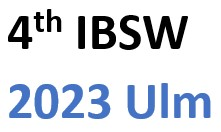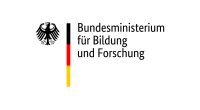Data Privacy Statement
/ Privacy Policy
We are very delighted that you have shown interest in our research institute. Data protection is of a particularly high priority for the management of the Zentrum für Sonnenenergie- und Wasserstoff-Forschung Baden-Württemberg (ZSW). The use of the Internet pages of the Zentrum für Sonnenenergie- und Wasserstoff-Forschung Baden-Württemberg (ZSW) is possible without any indication of personal data; however, if a data subject wants to use special services via our website, processing of personal data could become necessary. If the processing of personal data is necessary and there is no statutory basis for such processing, we generally obtain consent from the data subject.
The processing of personal data, such as the name, address, e-mail address, or telephone number of a data subject shall always be in line with the General Data Protection Regulation (GDPR), and in accordance with the country-specific data protection regulations applicable to the Zentrum für Sonnenenergie- und Wasserstoff-Forschung Baden-Württemberg (ZSW). By means of this data protection declaration, our enterprise would like to inform the general public of the nature, scope, and purpose of the personal data we collect, use and process. Furthermore, data subjects are informed, by means of this data protection declaration, of the rights to which they are entitled.
As the controller, the Zentrum für Sonnenenergie- und Wasserstoff-Forschung Baden-Württemberg (ZSW) has implemented numerous technical and organizational measures to ensure the most complete protection of personal data processed through this website. However, Internet-based data transmissions may in principle have security gaps, so absolute protection may not be guaranteed. For this reason, every data subject is free to transfer personal data to us via alternative means, e.g. by telephone.
1. Definitions
The data protection declaration of the Zentrum für Sonnenenergie- und Wasserstoff-Forschung Baden-Württemberg (ZSW) is based on the terms used by the European legislator for the adoption of the General Data Protection Regulation (GDPR). Our data protection declaration should be legible and understandable for the general public, as well as our customers and business partners. To ensure this, we would like to first explain the terminology used.
In this data protection declaration, we use, inter alia, the following terms:
a) Personal data
Personal data means any information relating to an identified or identifiable natural person (“data subject”). An identifiable natural person is one who can be identified, directly or indirectly, in particular by reference to an identifier such as a name, an identification number, location data, an online identifier or to one or more factors specific to the physical, physiological, genetic, mental, economic, cultural or social identity of that natural person.
b) Data subject
Data subject is any identified or identifiable natural person, whose personal data is processed by the controller responsible for the processing.
c) Processing
Processing is any operation or set of operations which is performed on personal data or on sets of personal data, whether or not by automated means, such as collection, recording, organisation, structuring, storage, adaptation or alteration, retrieval, consultation, use, disclosure by transmission, dissemination or otherwise making available, alignment or combination, restriction, erasure or destruction.
d) Restriction of processing
Restriction of processing is the marking of stored personal data with the aim of limiting their processing in the future.
e) Profiling
Profiling means any form of automated processing of personal data consisting of the use of personal data to evaluate certain personal aspects relating to a natural person, in particular to analyse or predict aspects concerning that natural person's performance at work, economic situation, health, personal preferences, interests, reliability, behaviour, location or movements.
f) Pseudonymisation
Pseudonymisation is the processing of personal data in such a manner that the personal data can no longer be attributed to a specific data subject without the use of additional information, provided that such additional information is kept separately and is subject to technical and organisational measures to ensure that the personal data are not attributed to an identified or identifiable natural person.
g) Controller or controller responsible for the processing
Controller or controller responsible for the processing is the natural or legal person, public authority, agency or other body which, alone or jointly with others, determines the purposes and means of the processing of personal data; where the purposes and means of such processing are determined by Union or Member State law, the controller or the specific criteria for its nomination may be provided for by Union or Member State law.
h) Processor
Processor is a natural or legal person, public authority, agency or other body which processes personal data on behalf of the controller.
i) Recipient
Recipient is a natural or legal person, public authority, agency or another body, to which the personal data are disclosed, whether a third party or not. However, public authorities which may receive personal data in the framework of a particular inquiry in accordance with Union or Member State law shall not be regarded as recipients; the processing of those data by those public authorities shall be in compliance with the applicable data protection rules according to the purposes of the processing.
j) Third party
Third party is a natural or legal person, public authority, agency or body other than the data subject, controller, processor and persons who, under the direct authority of the controller or processor, are authorised to process personal data.
k) Consent
Consent of the data subject is any freely given, specific, informed and unambiguous indication of the data subject's wishes by which he or she, by a statement or by a clear affirmative action, signifies agreement to the processing of personal data relating to him or her.
2. Name and Address of the controller
Controller for the purposes of the General Data Protection Regulation (GDPR), other data protection laws applicable in Member states of the European Union and other provisions related to data protection is:
Zentrum für Sonnenenergie- und Wasserstoff-Forschung Baden-Württemberg (ZSW)
Meitnerstr. 1
70563 Stuttgart
Deutschland
Phone: +49 (0)711 78 70-0
Email: info_at_zsw-bw.de
Website: www.zsw-bw.de
Legal Representative:
Managing Chairman of the Board of Directors Dr. rer. pol. Frithjof Staiß
3. Name and Address of the Data Protection Officer
The Data Protection Officer of the controller is:
Alexander Freitag
stratego IT management GmbH
Hofäckerstraße 32
74374 Zaberfeld
Deutschland
Email: datenschutz_at_zsw-bw.de
Website: www.stratego-it.com
Any data subject may, at any time, contact our Data Protection Officer directly with all questions and suggestions concerning data protection.
4. Cookies
The Internet pages of the Zentrum für Sonnenenergie- und Wasserstoff-Forschung Baden-Württemberg (ZSW) use cookies. Cookies are text files that are stored in a computer system via an Internet browser.
Many Internet sites and servers use cookies. Many cookies contain a so-called cookie ID. A cookie ID is a unique identifier of the cookie. It consists of a character string through which Internet pages and servers can be assigned to the specific Internet browser in which the cookie was stored. This allows visited Internet sites and servers to differentiate the individual browser of the dats subject from other Internet browsers that contain other cookies. A specific Internet browser can be recognized and identified using the unique cookie ID.
A session cookie is set with every visit to the ZSW website. It is deleted as soon as you close your browser. The cookie is used only for navigation, for building statistics and for displaying the website.
This information will not be available in later browser sessions. Because of the pseudonymisation of the IP address as described above, storing of this information or analysing the way the user accesses the website is possible only in a form which does not allow the ZSW to gain information about individual users.
The data subject may, at any time, prevent the setting of cookies through our website by means of a corresponding setting of the Internet browser used, and may thus permanently deny the setting of cookies. Furthermore, already set cookies may be deleted at any time via an Internet browser or other software programs. This is possible in all popular Internet browsers. If the data subject deactivates the setting of cookies in the Internet browser used, not all functions of our website may be entirely usable.
5. Collection of general data and information
The website of the Zentrum für Sonnenenergie- und Wasserstoff-Forschung Baden-Württemberg (ZSW) collects a series of general data and information when a data subject or automated system calls up the website. This general data and information are stored in the server log files. Collected are (1) the IP address, truncated by two bytes, (2) the date and time of access to the Internet site and (3) the website from which an accessing system reaches our website (so-called referrers), that may be used in the event of attacks on our information technology systems.
When using these general data and information, the Zentrum für Sonnenenergie- und Wasserstoff-Forschung Baden-Württemberg (ZSW) does not draw any conclusions about the data subject. Rather, this information is needed to (1) deliver the content of our website correctly, (2) optimize the content of our website as well as its advertisement, (3) ensure the long-term viability of our information technology systems and website technology, and (4) provide law enforcement authorities with the information necessary for criminal prosecution in case of a cyber-attack. Therefore, the Zentrum für Sonnenenergie- und Wasserstoff-Forschung Baden-Württemberg (ZSW) analyzes anonymously collected data and information statistically, with the aim of increasing the data protection and data security of our enterprise, and to ensure an optimal level of protection for the personal data we process. The anonymous data of the server log files are stored separately from all personal data provided by a data subject. Log files are automatically deleted after 90 days.
6. Subscription to media distribution list
On the website of the Zentrum für Sonnenenergie- und Wasserstoff-Forschung Baden-Württemberg (ZSW), users are given the opportunity to be added to our media distribution list. The input mask used for this purpose determines what personal data are transmitted, as well as when the newsletter is ordered from the controller.
The Zentrum für Sonnenenergie- und Wasserstoff-Forschung Baden-Württemberg (ZSW) sends its press releases to all registered users. The press releases may only be received by the data subject if (1) the data subject has a valid e-mail address and (2) the data subject registers for the newsletter shipping. A confirmation e-mail will be sent to the e-mail address registered by a data subject for the first time for newsletter shipping, for legal reasons, in the double opt-in procedure. This confirmation e-mail is used to prove whether the owner of the e-mail address as the data subject is authorized to receive the newsletter.
The personal data collected as part of a registration for the media distribution list will only be used to send our press releases. In addition, subscribers to the press releases may be informed by e-mail, as long as this is necessary for the operation of the press release service or a registration in question, as this could be the case in the event of modifications to the press releases offer, or in the event of a change in technical circumstances. There is a transfer of personal data collected by the press release service to our PR agency Solar Consulting GmbH. The subscription to our press releases may be terminated by the data subject at any time. The consent to the storage of personal data, which the data subject has given for shipping the press releases, may be revoked at any time. For the purpose of revocation of consent, a corresponding link is found in each press release. It is also possible to unsubscribe from the press release at any time directly on the website of the controller, or to communicate this to the controller in a different way.
7. Contact possibility via the website
The website of the Zentrum für Sonnenenergie- und Wasserstoff-Forschung Baden-Württemberg (ZSW) contains information that enables a quick electronic contact to our enterprise, as well as direct communication with us, which also includes a general address of the so-called electronic mail (e-mail address). If a data subject contacts the controller by e-mail or via a contact form, the personal data transmitted by the data subject are automatically stored. Such personal data transmitted on a voluntary basis by a data subject to the data controller are stored for the purpose of processing or contacting the data subject. There is no transfer of this personal data to third parties.
8. Routine erasure and blocking of personal data
The data controller shall process and store the personal data of the data subject only for the period necessary to achieve the purpose of storage, or as far as this is granted by the European legislator or other legislators in laws or regulations to which the controller is subject to.
If the storage purpose is not applicable, or if a storage period prescribed by the European legislator or another competent legislator expires, the personal data are routinely blocked or erased in accordance with legal requirements.
9. Rights of the data subject
a) Right of confirmation
Each data subject shall have the right granted by the European legislator to obtain from the controller the confirmation as to whether or not personal data concerning him or her are being processed. If a data subject wishes to avail himself of this right of confirmation, he or she may, at any time, contact any employee of the controller.
b) Right of access
Each data subject shall have the right granted by the European legislator to obtain from the controller free information about his or her personal data stored at any time and a copy of this information. Furthermore, the European directives and regulations grant the data subject access to the following information:
the purposes of the processing;
the categories of personal data concerned;
the recipients or categories of recipients to whom the personal data have been or will be disclosed, in particular recipients in third countries or international organisations;
where possible, the envisaged period for which the personal data will be stored, or, if not possible, the criteria used to determine that period;
the existence of the right to request from the controller rectification or erasure of personal data, or restriction of processing of personal data concerning the data subject, or to object to such processing;
the existence of the right to lodge a complaint with a supervisory authority;
where the personal data are not collected from the data subject, any available information as to their source;
the existence of automated decision-making, including profiling, referred to in Article 22(1) and (4) of the GDPR and, at least in those cases, meaningful information about the logic involved, as well as the significance and envisaged consequences of such processing for the data subject.
Furthermore, the data subject shall have a right to obtain information as to whether personal data are transferred to a third country or to an international organisation. Where this is the case, the data subject shall have the right to be informed of the appropriate safeguards relating to the transfer.
If a data subject wishes to avail himself of this right of access, he or she may, at any time, contact any employee of the controller.
c) Right to rectification
Each data subject shall have the right granted by the European legislator to obtain from the controller without undue delay the rectification of inaccurate personal data concerning him or her. Taking into account the purposes of the processing, the data subject shall have the right to have incomplete personal data completed, including by means of providing a supplementary statement.
If a data subject wishes to exercise this right to rectification, he or she may, at any time, contact any employee of the controller.
d) Right to erasure (Right to be forgotten)
Each data subject shall have the right granted by the European legislator to obtain from the controller the erasure of personal data concerning him or her without undue delay, and the controller shall have the obligation to erase personal data without undue delay where one of the following grounds applies, as long as the processing is not necessary:
The personal data are no longer necessary in relation to the purposes for which they were collected or otherwise processed.
The data subject withdraws consent to which the processing is based according to point (a) of Article 6(1) of the GDPR, or point (a) of Article 9(2) of the GDPR, and where there is no other legal ground for the processing.
The data subject objects to the processing pursuant to Article 21(1) of the GDPR and there are no overriding legitimate grounds for the processing, or the data subject objects to the processing pursuant to Article 21(2) of the GDPR.
The personal data have been unlawfully processed.
The personal data must be erased for compliance with a legal obligation in Union or Member State law to which the controller is subject.
The personal data have been collected in relation to the offer of information society services referred to in Article 8(1) of the GDPR.
If one of the aforementioned reasons applies, and a data subject wishes to request the erasure of personal data stored by the Zentrum für Sonnenenergie- und Wasserstoff-Forschung Baden-Württemberg (ZSW), he or she may, at any time, contact any employee of the controller. An employee of Zentrum für Sonnenenergie- und Wasserstoff-Forschung Baden-Württemberg (ZSW) shall promptly ensure that the erasure request is complied with immediately.
Where the controller has made personal data public and is obliged pursuant to Article 17(1) to erase the personal data, the controller, taking account of available technology and the cost of implementation, shall take reasonable steps, including technical measures, to inform other controllers processing the personal data that the data subject has requested erasure by such controllers of any links to, or copy or replication of, those personal data, as far as processing is not required. An employees of the Zentrum für Sonnenenergie- und Wasserstoff-Forschung Baden-Württemberg (ZSW) will arrange the necessary measures in individual cases.
e) Right of restriction of processing
Each data subject shall have the right granted by the European legislator to obtain from the controller restriction of processing where one of the following applies:
The accuracy of the personal data is contested by the data subject, for a period enabling the controller to verify the accuracy of the personal data.
The processing is unlawful and the data subject opposes the erasure of the personal data and requests instead the restriction of their use instead.
The controller no longer needs the personal data for the purposes of the processing, but they are required by the data subject for the establishment, exercise or defence of legal claims.
The data subject has objected to processing pursuant to Article 21(1) of the GDPR pending the verification whether the legitimate grounds of the controller override those of the data subject.
If one of the aforementioned conditions is met, and a data subject wishes to request the restriction of the processing of personal data stored by the Zentrum für Sonnenenergie- und Wasserstoff-Forschung Baden-Württemberg (ZSW), he or she may at any time contact any employee of the controller. The employee of the Zentrum für Sonnenenergie- und Wasserstoff-Forschung Baden-Württemberg (ZSW) will arrange the restriction of the processing.
f) Right to data portability
Each data subject shall have the right granted by the European legislator, to receive the personal data concerning him or her, which was provided to a controller, in a structured, commonly used and machine-readable format. He or she shall have the right to transmit those data to another controller without hindrance from the controller to which the personal data have been provided, as long as the processing is based on consent pursuant to point (a) of Article 6(1) of the GDPR or point (a) of Article 9(2) of the GDPR, or on a contract pursuant to point (b) of Article 6(1) of the GDPR, and the processing is carried out by automated means, as long as the processing is not necessary for the performance of a task carried out in the public interest or in the exercise of official authority vested in the controller.
Furthermore, in exercising his or her right to data portability pursuant to Article 20(1) of the GDPR, the data subject shall have the right to have personal data transmitted directly from one controller to another, where technically feasible and when doing so does not adversely affect the rights and freedoms of others.
In order to assert the right to data portability, the data subject may at any time contact any employee of the Zentrum für Sonnenenergie- und Wasserstoff-Forschung Baden-Württemberg (ZSW).
g) Right to object
Each data subject shall have the right granted by the European legislator to object, on grounds relating to his or her particular situation, at any time, to processing of personal data concerning him or her, which is based on point (e) or (f) of Article 6(1) of the GDPR. This also applies to profiling based on these provisions.
The Zentrum für Sonnenenergie- und Wasserstoff-Forschung Baden-Württemberg (ZSW) shall no longer process the personal data in the event of the objection, unless we can demonstrate compelling legitimate grounds for the processing which override the interests, rights and freedoms of the data subject, or for the establishment, exercise or defense of legal claims.
If the Zentrum für Sonnenenergie- und Wasserstoff-Forschung Baden-Württemberg (ZSW) processes personal data for direct marketing purposes, the data subject shall have the right to object at any time to processing of personal data concerning him or her for such marketing. This applies to profiling to the extent that it is related to such direct marketing. If the data subject objects to the Zentrum für Sonnenenergie- und Wasserstoff-Forschung Baden-Württemberg (ZSW) to the processing for direct marketing purposes, the Zentrum für Sonnenenergie- und Wasserstoff-Forschung Baden-Württemberg (ZSW) will no longer process the personal data for these purposes.
In addition, the data subject has the right, on grounds relating to his or her particular situation, to object to processing of personal data concerning him or her by the Zentrum für Sonnenenergie- und Wasserstoff-Forschung Baden-Württemberg (ZSW) for scientific or historical research purposes, or for statistical purposes pursuant to Article 89(1) of the GDPR, unless the processing is necessary for the performance of a task carried out for reasons of public interest.
In order to exercise the right to object, the data subject may contact any employee of the Zentrum für Sonnenenergie- und Wasserstoff-Forschung Baden-Württemberg (ZSW). In addition, the data subject is free in the context of the use of information society services, and notwithstanding Directive 2002/58/EC, to use his or her right to object by automated means using technical specifications.
h) Automated individual decision-making, including profiling
Each data subject shall have the right granted by the European legislator not to be subject to a decision based solely on automated processing, including profiling, which produces legal effects concerning him or her, or similarly significantly affects him or her, as long as the decision (1) is not is necessary for entering into, or the performance of, a contract between the data subject and a data controller, or (2) is not authorised by Union or Member State law to which the controller is subject and which also lays down suitable measures to safeguard the data subject's rights and freedoms and legitimate interests, or (3) is not based on the data subject's explicit consent.
If the decision (1) is necessary for entering into, or the performance of, a contract between the data subject and a data controller, or (2) it is based on the data subject's explicit consent, the Zentrum für Sonnenenergie- und Wasserstoff-Forschung Baden-Württemberg (ZSW) shall implement suitable measures to safeguard the data subject's rights and freedoms and legitimate interests, at least the right to obtain human intervention on the part of the controller, to express his or her point of view and contest the decision.
If the data subject wishes to exercise the rights concerning automated individual decision-making, he or she may, at any time, contact any employee of the Zentrum für Sonnenenergie- und Wasserstoff-Forschung Baden-Württemberg (ZSW).
i) Right to withdraw data protection consent
Each data subject shall have the right granted by the European legislator to withdraw his or her consent to processing of his or her personal data at any time.
If the data subject wishes to exercise the right to withdraw the consent, he or she may, at any time, contact any employee of the Zentrum für Sonnenenergie- und Wasserstoff-Forschung Baden-Württemberg (ZSW).
10. Data protection for applications and the application procedures
The data controller shall collect and process the personal data of applicants for the purpose of the processing of the application procedure. The processing may also be carried out electronically. This is the case, in particular, if an applicant submits corresponding application documents by e-mail or by means of a web form on the website to the controller. If the data controller concludes an employment contract with an applicant, the submitted data will be stored for the purpose of processing the employment relationship in compliance with legal requirements. If no employment contract is concluded with the applicant by the controller, the application documents shall be automatically erased two months after notification of the refusal decision, provided that no other legitimate interests of the controller are opposed to the erasure. Other legitimate interest in this relation is, e.g. a burden of proof in a procedure under the General Equal Treatment Act (AGG).
11. Data protection provisions about the application and use of Matomo
On this website, the controller has integrated the Matomo component. Matomo is an open-source software tool for web analysis. Web analysis is the collection, gathering and evaluation of data on the behavior of visitors from Internet sites. A web analysis tool collects, inter alia, data on the website from which a data subject came to a website (so-called referrer), which pages of the website were accessed or how often and for which period of time a sub-page was viewed. A web analysis is mainly used for the optimization of a website and the cost-benefit analysis of Internet advertising.
The software stores cookies on the computer system of the user (related to cookies see above). Following data are stored while requesting single pages of our website
(1) two bytes of the IP address of the requesting system oft the user
(2) the requested web page
(3) the website from which an accessing system reaches our website (so-called referrers),
(4) the subpages, which are accessed from the requested web page
(5) the retention time on the web site
(6) the request frequency of the web site
The software is hosted on server of trurnit GmbH, Putzbrunner Straße 38, 85521 Ottobrunn. Further Information and the applicable data protection provisions of trurnit may be retrieved under www.trurnit.de/datenschutzhinweis/.
The purpose of the Matomo component is the analysis of the visitor flows on our website. The controller uses the obtained data and information, inter alia, to evaluate the use of this website in order to compile online reports, which show the activities on our Internet pages.
Matomo sets a cookie on the information technology system of the data subject. The definition of cookies is explained above. With the setting of the cookie, an analysis of the use of our website is enabled. With each call-up to one of the individual pages of this website, the Internet browser on the information technology system of the data subject is automatically through the Matomo component prompted to submit data for the purpose of online analysis to our server. During the course of this technical procedure, we obtain knowledge about personal information, such as the IP address of the data subject, which serves to understand the origin of visitors and clicks.
The cookie is used to store personal information, such as the access time, the location from which access was made, and the frequency of visits to our website. With each visit of our Internet pages, these personal data, including the IP address of the Internet access used by the data subject, are transferred to our server. These personal data will be stored by us. We do not forward this personal data to third parties.
The data subject may, as stated above, prevent the setting of cookies through our website at any time by means of a corresponding adjustment of the web browser used and thus permanently deny the setting of cookies. Such an adjustment to the used Internet browser would also prevent Matomo from setting a cookie on the information technology system of the data subject. In addition, cookies already in use by Matomo may be deleted at any time via a web browser or other software programs.
In addition, the data subject has the possibility of objecting to a collection of data relating to a use of this Internet site that are generated by Matomo as well as the processing of these data by Matomo and the chance to preclude any such. For this, the data subject must set a "Do Not Track" option in the browser.
With each setting of the opt-out cookie, however, there is the possibility that the websites of the controller are no longer fully usable for the data subject.
Further information and the applicable data protection provisions of Matomo may be retrieved under https://matomo.org/privacy/.
12. Google Maps
We use maps of the service "Google Maps" des Anbieters Google LLC, 1600 Amphitheatre Parkway, Mountain View, CA 94043, USA. Especially IP address and location data of the user may be processed, which however are not collected without the agreement of the user (normally put into effect in the context of the settings of their mobile devices). The data may be processed in the USA. Privacy policy: www.google.com/policies/privacy/, Opt-Out: adssettings.google.com/authenticated.
13. Sharing buttons
On the website we use "Shariff" buttons with data protection.
"Shariff" was developed by specialists from the computer magazine c't, to allow more privacy on the net and to replace the usual "share" buttons of social networks.
More information about the Shariff project can be found here.
14. Embedded Videos and pictures of external web sites
Some of our pages may include embedded content of YouTube. With only requesting of a page of our internet service with embedded videos or pictures from our YouTube channel, no personal data except the IP address are transferred. In case of YouTube the IP address is transferred to Google Inc., 600 Amphitheatre Parkway, Mountain View, CA 94043, USA (»Google«).
15. Legal basis for the processing
Art. 6(1) lit. a GDPR serves as the legal basis for processing operations for which we obtain consent for a specific processing purpose. If the processing of personal data is necessary for the performance of a contract to which the data subject is party, as is the case, for example, when processing operations are necessary for the supply of goods or to provide any other service, the processing is based on Article 6(1) lit. b GDPR. The same applies to such processing operations which are necessary for carrying out pre-contractual measures, for example in the case of inquiries concerning our products or services. Is our company subject to a legal obligation by which processing of personal data is required, such as for the fulfillment of tax obligations, the processing is based on Art. 6(1) lit. c GDPR. In rare cases, the processing of personal data may be necessary to protect the vital interests of the data subject or of another natural person. This would be the case, for example, if a visitor were injured in our company and his name, age, health insurance data or other vital information would have to be passed on to a doctor, hospital or other third party. Then the processing would be based on Art. 6(1) lit. d GDPR. Finally, processing operations could be based on Article 6(1) lit. f GDPR. This legal basis is used for processing operations which are not covered by any of the abovementioned legal grounds, if processing is necessary for the purposes of the legitimate interests pursued by our company or by a third party, except where such interests are overridden by the interests or fundamental rights and freedoms of the data subject which require protection of personal data. Such processing operations are particularly permissible because they have been specifically mentioned by the European legislator. He considered that a legitimate interest could be assumed if the data subject is a client of the controller (Recital 47 Sentence 2 GDPR).
16. The legitimate interests pursued by the controller or by a third party
Where the processing of personal data is based on Article 6(1) lit. f GDPR our legitimate interest is to carry out our business in favor of the well-being of all our employees and the shareholders.
17. Period for which the personal data will be stored
The criteria used to determine the period of storage of personal data is the respective statutory retention period. After expiration of that period, the corresponding data is routinely deleted, as long as it is no longer necessary for the fulfillment of the contract or the initiation of a contract.
18. Provision of personal data as statutory or contractual requirement; Requirement necessary to enter into a contract; Obligation of the data subject to provide the personal data; possible consequences of failure to provide such data
We clarify that the provision of personal data is partly required by law (e.g. tax regulations) or can also result from contractual provisions (e.g. information on the contractual partner). Sometimes it may be necessary to conclude a contract that the data subject provides us with personal data, which must subsequently be processed by us. The data subject is, for example, obliged to provide us with personal data when our company signs a contract with him or her. The non-provision of the personal data would have the consequence that the contract with the data subject could not be concluded. Before personal data is provided by the data subject, the data subject must contact any employee. The employee clarifies to the data subject whether the provision of the personal data is required by law or contract or is necessary for the conclusion of the contract, whether there is an obligation to provide the personal data and the consequences of non-provision of the personal data.
19. Existence of automated decision-making
As a responsible company, we do not use automatic decision-making or profiling.
20. Announcement of changes
We may update this Policy from time to time, in order to comply always with the present legal requirements or to implement changes of our services in our privacy policy, e.g. the introduction of new services. At the time of your next visit of our web site, the new privacy policy is valid.
21. Questions about Privacy Policy
In case you have any questions about the privacy policy at the ZSW, you can apply at any time to datenschutz_at_zsw-bw.de.
This Privacy Policy has been generated by the Privacy Policy Generator of the External Data Protection Officers that was developed in cooperation with the Media Law Lawyers from WBS-LAW.








